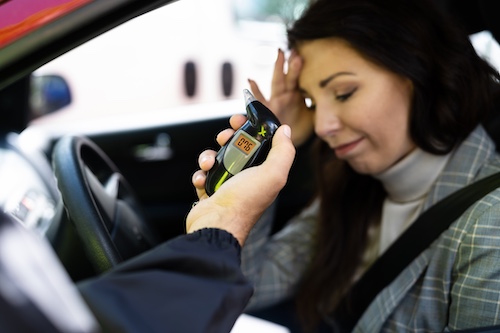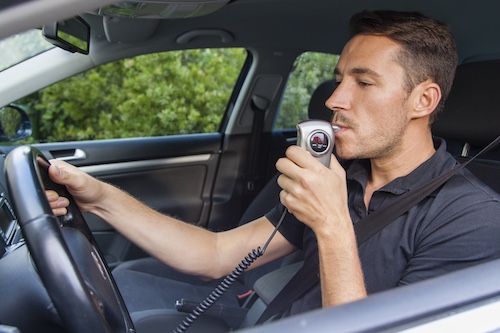Drugged Driving vs Alcohol DUI in Asheville, NC: What You Need to Know
When it comes to drugged driving vs alcohol DUI, Asheville, few topics generate as much confusion among drivers in Western North Carolina. Many people assume that North Carolina’s DUI laws only apply to alcohol impairment—but the reality is that both drugged driving and drunk driving carry equally serious legal consequences. At Asheville DUI Guy, we’ve seen how a single mistake can change someone’s life. From driver’s license suspension to mandatory jail time, the penalties for an impaired driving offense are steep, and understanding your rights is essential. Understanding the dangers of drugged driving vs alcohol DUI in Asheville is critical for anyone behind the wheel.
Understanding DUI and DWI in North Carolina
In North Carolina, terms like DUI (Driving Under the Influence), DWI (Driving While Impaired), and drunk driving are often used interchangeably. However, the law focuses on driving while impaired, which includes not just alcohol but also any impairing substance, such as a prescription drug, controlled substance, or other drugs that diminish your mental faculties and ability to respond to traffic signals.
Law enforcement officers in Asheville use several tools to determine whether a driver is impaired:
- Standardized field sobriety tests (SFSTs): These physical coordination checks help officers assess whether a driver is impaired.
- Breathalyzer test and breath test: Measure blood alcohol concentration (BAC level). If your blood alcohol content reaches 0.08%, you’re considered legally intoxicated.
- Blood tests: Often used in drugged driving cases to detect the presence of controlled substances or prescription drugs.
The law doesn’t distinguish between being impaired by alcohol or drugs—the end result is the same: an impaired driving offense.
Drugged Driving vs Alcohol DUI in Asheville
When comparing drugged driving vs alcohol DUI in Asheville, the differences often lie in how cases are proven in court.
Alcohol Impairment
With alcohol, testing is straightforward. A breath test or breathalyzer test measures your BAC level, providing immediate evidence of whether you’re over the legal limit. If your blood alcohol concentration exceeds 0.08%, you can face a DWI charge regardless of whether your driving was visibly impaired.
Drugged Driving
On the other hand, drugged driving is harder to detect. While field sobriety tests may reveal impairment, proving the influence of a prescription drug or other drugs often requires blood testing. Even legally prescribed medication can lead to DUI charges if it affects your ability to operate a vehicle safely.
Key Similarities
Both offenses carry severe criminal charges:
- DWI offenses can result in driver’s license suspension, license revocation, and installation of an ignition interlock device.
- Whether it’s alcohol impairment or drugged driving, Asheville courts treat both as serious threats to public safety.
The bottom line? The difference between drugged driving vs alcohol DUI in Asheville may come down to testing methods, but the legal consequences are equally harsh.
Legal Consequences of Drugged Driving vs Alcohol DUI in Asheville, North Carolina
The penalties for drugged driving vs alcohol DUI in Asheville are equally harsh under North Carolina’s DUI laws. North Carolina’s DUI laws impose escalating penalties depending on factors like a first offense, second offense, or prior conviction. Judges consider aggravating factors such as reckless driving, causing injury, or having a child in the car when sentencing an impaired driver.
Common Penalties Include:
- Driver’s license suspension or permanent license revocation.
- Court costs and fines that can devastate your finances.
- Mandatory jail time for repeat offenders.
- Community service requirements.
- Installation of an ignition interlock device for those convicted of DWI offenses.
Habitual and Felony Charges
If you’re convicted of habitual impaired driving, the consequences escalate to felony charges, vehicle forfeiture, and lengthy jail time. Even a single DWI charge with certain aggravating factors can push a case from misdemeanor to felony status.
Limited Driving Privilege
Some drivers may qualify for a limited driving privilege, but this is restricted and often requires proof of employment necessity, payment of court costs, and installation of monitoring devices.
At Asheville DUI Guy, we’ve helped clients navigate these penalties, but prevention remains the best defense.
How Asheville Courts Handle DUI Charges
In Western North Carolina, courts approach DUI in North Carolina with strict enforcement. When you’re found guilty of an impaired driving offense, judges weigh your prior conviction history, your BAC level, and any aggravating factors.
- First offense: May include fines, license suspension, and community service.
- Second offense: Can lead to longer jail time, license revocation, and mandatory ignition interlock devices.
- Felony charges: Triggered by habitual impaired driving or causing injury/death.
Former prosecutors often handle these cases for the state, which means the government is prepared to push hard for a conviction. That’s why hiring an experienced attorney for a DUI charge is critical.
Real-Life Impact of an Impaired Driving Conviction
Beyond the courtroom, a conviction for drugged driving vs alcohol DUI in Asheville has long-lasting effects:
- Loss of your driver’s license may jeopardize your job.
- Financial burdens from court costs, fines, and vehicle modifications like an ignition interlock device.
- Damage to relationships with a loved one who relies on your driving.
- Difficulty traveling if you’re convicted of DUI or DWI or have a record of criminal charges.
Many clients underestimate the ripple effect of an impaired driving offense. The combination of penalties, license suspension, and social stigma often follows a driver for years.
Defense Strategies & Prevention of Drugged Driving vs Alcohol DUI in Asheville
Facing a DWI charge or DUI charges doesn’t always mean a guaranteed conviction. Attorneys often challenge the reliability of field sobriety tests, the accuracy of a breathalyzer test, or whether law enforcement officers had probable cause. When facing charges for drugged driving vs alcohol DUI in Asheville, the right attorney can challenge evidence such as breath tests and blood tests.
Defense Strategies May Include:
- Questioning whether the implied consent law was properly explained.
- Contesting blood alcohol content testing methods.
- Proving that a prescription drug did not impair the driver’s mental faculties.
Prevention and Awareness
To avoid becoming an impaired driver, consider:
- Using rideshare apps after drinking alcohol.
- Avoiding driving if you’ve taken an impairing substance.
- Discussing side effects of prescription drugs with your doctor.
- Seeking treatment for substance issues before they lead to a dui in North Carolina.
Education is key—both for preventing accidents and avoiding criminal charges.
Frequently Asked Questions About Drugged Driving vs Alcohol DUI in Asheville, NC
What is the difference between drugged driving and alcohol DUI in Asheville, North Carolina?
The main difference between drugged driving and alcohol DUI in Asheville lies in how impairment is detected and proven in court. With alcohol impairment, a breathalyzer test or breath test measures blood alcohol concentration (BAC level) to determine whether a driver is legally intoxicated. For drugged driving, however, law enforcement officers often rely on blood tests, standardized field sobriety tests, and observations of impaired mental faculties. Both fall under North Carolina’s DUI laws, and both can lead to DWI offenses, criminal charges, driver’s license suspension, and mandatory use of an ignition interlock device if convicted.
Can prescription drugs lead to DUI charges in Western North Carolina?
Yes. Even legally prescribed medication can result in a drugged driving charge if it impairs your ability to operate a vehicle safely. Prescription drugs that affect reaction time, coordination, or alertness are considered impairing substances under North Carolina DUI laws. If a law enforcement officer believes your driving is affected, you could face DUI charges, license revocation, and potential jail time, just as you would for alcohol impairment.
How do Asheville courts handle drugged driving vs alcohol DUI cases?
In Western North Carolina, courts take both drugged driving and alcohol-related DUI charges very seriously. A first offense may result in court costs, community service, and a temporary license suspension, while a second offense or prior conviction can bring harsher penalties such as mandatory jail time, limited driving privilege restrictions, and even felony charges for habitual impaired driving. Whether the charge involves alcohol or a controlled substance, Asheville judges often weigh aggravating factors like prior arrests, reckless driving, or an impaired driver causing injury before deciding on penalties.
What legal consequences can I face for a drugged driving conviction in Asheville?
If you are found guilty of drugged driving in North Carolina, the legal consequences mirror those of an alcohol DUI. These include driver’s license suspension, long-term license revocation, possible vehicle forfeiture, and costly installation of an ignition interlock device. You may also face community service, jail time, or probation. For repeat offenders or those with aggravating factors, penalties escalate quickly and can involve felony charges.
How can an attorney help with drugged driving vs alcohol DUI in Asheville, NC?
An experienced DUI attorney can challenge the accuracy of field sobriety tests, the reliability of breathalyzer tests, or the validity of blood alcohol content evidence. In drugged driving cases, an attorney may question whether the controlled substance or prescription drug actually impaired the driver’s mental faculties. At Asheville DUI Guy, we leverage our knowledge of North Carolina DUI laws, local courts, and even insights from former prosecutors to defend clients facing DUI /DWI charges.
Is it easier to prove alcohol impairment than drugged driving in Asheville?
Yes, proving alcohol impairment is typically more straightforward because of measurable BAC levels and the legal limit of 0.08%. In contrast, drugged driving cases are more complex because different substances affect drivers differently, and there is no universally accepted threshold like a BAC level for drugs. Prosecutors must rely on blood tests, behavioral signs, and field sobriety tests, which can make these cases more open to legal defense.
What happens if I refuse a breath test or blood test in North Carolina?
Under North Carolina’s implied consent laws, refusing a breath test or blood test when stopped for DUI charges can lead to immediate license suspension and additional penalties even before a conviction. Refusal may also be used against you in court, and you could lose eligibility for a limited driving privilege. Whether accused of drugged driving or alcohol DUI, refusal complicates your defense and often results in harsher outcomes.
Protect Your Rights, Your License, and Your Future After a DUI or DWI in Asheville
Being charged with drugged driving vs alcohol DUI in Asheville can feel overwhelming, especially when you’re facing the risk of driver’s license suspension, heavy court costs, and even mandatory jail time. The legal system in North Carolina is tough on impaired drivers, but you don’t have to go through it alone.
Call Asheville DUI Guy today for a free, confidential consultation. 828-759-5556
Our experienced team knows the local courts, understands the strategies used by law enforcement officers and prosecutors, and will fight to protect your freedom, your driving privileges, and your future.
If you or a loved one is facing charges for drugged driving vs alcohol DUI in Asheville, contact Asheville DUI Guy today.








